TTP declares indefinite ceasefire as peace talks ‘progress’
8 min readThe Tehreek-e-Taliban Pakistan (TTP) on Thursday declared an indefinite ceasefire with Pakistan, saying “substantial progress” had been made in peace talks in Kabul.
Since the Afghan Taliban returned to power last year, Pakistan has increasingly complained of attacks by the TTP, especially along the mountainous border with Afghanistan.
“In the two days of meeting substantial progress has been made and as a result of that the leadership of the TTP has extended the ceasefire until further notice,” TTP’s spokesman Muhammad Khurasani said in a statement issued in Kabul.
A truce previously agreed until May 30 for the Islamic festival of Eid had held until now.
“For taking the negotiations forward further meetings will be held in few days,” Khurasani said.
During the talks, it demanded the enforcement of Nizam-e-Adl, saying that Islamic law should be imposed in at least those areas where the TTP is present. They also want a roll back to the merger of the erstwhile Federally Administered Tribal Areas and Khyber Pakhtunkhwa, the release of TTP prisoners, compensation for losses suffered by people of the tribal districts and the removal of the army from the tribal areas.
The government has reportedly accepted the TTP’s demand to take back command of Malakand Division from the army and hand it to the Frontier Corps.
The status of ex-FATA, now referred to as tribal districts, is expected to be taken up in the next session. But sources privy to the talks say the the Pakistan team has deemed the demand for a rollback “unworkable”.
The issue will be discussed in a three-member mediation committee headed by Afghan Interior Minister and Taliban leader Sirajuddin Haqqani. The committee was formed to resolve contentious issues between the two parties. The mediation committee includes members of the TTP and the Pakistan delegation.
TTP founding member Omar Khalid Khurasani, Mufti Ghufran and a man identified as Commander Zarar are the TTP’s representatives on the mediation committee. From Pakistan’s side, the team consists of three officers, headed by a General.
Key personnel
A jirga of tribal people, comprising more than 50 people, is in Kabul for the talks. Former KP Governor Engineer Shaukatullah Khan from Bajaur, former MNA Syed Akhonzada Chittan, former Senator Maulana Saleh Shah from Waziristan, Senator Hilal Rehman from Mohmand and former Senator Abdul Rehman Faqir, Sajid Hussain Turi from Kurram, Barrister Muhammad Ali Saif and others are part of the jirga. Sources add that the delegation includes some members of political parties as well.
From the Pakistan side, several high ranking officers of the security forces and intelligence agencies are part of the delegation. It was reported that Peshawar Corps Commander General Faiz Hameed has also visited Kabul but it couldn’t be confirmed if it was to take part in negotiations with the TTP.
The TTP committee includes Maulana Faqeer Muhammad, Doctor Hamood, Qazi Muhammad Ameer, Mufti Abu Hurraira, Commander Bilal Ghai and Maulvi Aleem Khan. Members of the TTP’s Council of Leaders are part of the talks with their delegation comprising 16 members.
Other than the main committees, several sub-committees have been formed to facilitate and expedite the talks. These committees include those for prisoner release and compensation for losses. The TTP has also formed a committee to monitor the talks. Umar Khalid Khurasani, Commander Hilal Ghazi and Mufti Ghufran are part of this committee.
Previous two rounds of talks
Two previous rounds of talks led to temporary ceasefires. However, the second round of talks ended unsuccessfully with the TTP unilaterally deciding against renewing the ceasefire in December last year.
Sources say that at the onset of the talks, the TTP accused Pakistan of having an inflexible attitude. “They asked the TTP leadership to surrender and accept the Constitution of Pakistan. In return, they offered the TTP amnesty in return for laying down arms and staying peaceful,” said one source.
The TTP unequivocally rejected Pakistan’s offer. TTP spokesperson Muhammad Khurasani’s response to that offer was that amnesty is for those who have committed a crime. “The TTP is waging holy war against the enemies of the country, its people and Islam.”
Following another stalemate, the Pakistan government released over 100 TTP prisoners as a ‘goodwill gesture’. Sources say the decision was predicated on a return to ceasefire which was decided during talks that were held in Khost.
The latest ceasefire lasted for a month but the TTP, accusing the Pakistan government of not abiding by the agreement, ended it unilaterally and intensified attacks - specifically against state institutions. There was an uptick in attacks on military convoys and check posts with dozens of lives lost, including those of law-enforcement personnel.
Sidelining the Afghan Taliban
Tribal elders part of the negotiations, speaking on the condition of anonymity, said there was a perception in Pakistan that the Taliban-led government would support it in talks with the TTP.
“They were operating under the perception that they could use the Afghan Taliban to bring the TTP under control,” said one source. When this did not happen, Pakistan tried to limit the Afghan Taliban’s role to a facilitator of the talks instead of an active participant.
The source says that a jirga of tribal elders was dispatched to hold talks with the TTP. “About 30 to 35 elders of the Mehsud tribe were part of the jirga. They were chosen because the TTP includes a large number of members of the Mehsud tribe while the TTP leadership comprises members from the same tribe.”
The source said that the TTP leadership turned down the suggestion to exclude the Taliban from the talks, saying that the tribal jirga lacks the authority to implement any decisions taken in any such jirga.
Latest updates
Several sources as well participants of the negotiating teams have confirmed that a separate team comprising officers of the Pakistan Army has been staying at the Pakistan embassy in Kabul.
It has held several meetings with the TTP’s negotiation team, headed by Omar Khalid Khurasani who is known for his strong anti-Pakistan stance. This process is still underway with multiple meetings having taken place between the two delegations.
According to local news networks, the two committees have taken a 10-day break from talks for consultation with their respective leadership. The next meeting is scheduled for the second week of June.
In a previous meeting, according to sources, the two parties had presented their demands. The parties have agreed on some points while others remain under discussion.
Who is demanding what
There has already been progress on the release of prisoners. According to the TTP’s preliminary list, 102 prisoners have been released. They include key TTP leader Haji Muslim Khan and Commander Mahmood Khan who have been granted a presidential pardon. The two have been released and handed over to the Afghan embassy in Pakistan, where they are now residing with their families. They are in a state of virtual house arrest. According to Taliban sources, the restriction on their movement will be lifted once the talks are successful.
There is no specific deadlock between the negotiation teams on the release of the remaining prisoners and the determination of troop numbers in the tribal areas. But the government’s demand for the abolition of the TTP structure is an issue that is difficult to agree on because the TTP leadership equates the demise of the organizational structure with the demise and defeat of its own existence and power.
The following is an outline of the demands of each party and the points on which issues consensus has been achieved.
TTP’s demands:
- Release all TTP prisoners held in Pakistani prisons or in custody of Pakistan forces.
- Army to exit the tribal districts formerly known as FATA
- Compensation for losses incurred by residents of the recently-merged tribal districts
- Removing TTP from the terrorism blacklist
- Ending restrictions on the movement of TTP members in the country
- Implementation of agreement between the tribes and the Quaid-e-Azam
- Setting up of political offices in other countries.
- Nizam-e-Adl regulation in Malakand
Pakistan government demands:
- TTP must swear allegiance to the Constitution
- Countrywide ceasefire
- TTP to stop working with other militant groups.
- TTP members to only keep licensed firearm in line with country’s laws. No one will be allowed to bear unlicensed firearms
- Dissolution of TTP’s organizational structure
- TTP members to lead lives like other ordinary citizens
Points on which consensus has been reached:
- The presence of FC [Frontier Corps] on the border will be 60% while the army presence will be reduced to 40%
- Frontier Corps to be deployed at all check posts
- Remaining contingent of Pak army to return to barracks
- Remaining forces of army to confine itself to its own existing cantonments. FC to occupy cantonments belonging to it.
- Army cannot establish new cantonments. This restriction isn’t applicable to the FC
- Three member mediation committee to be established to compile and catalogue this work
- Mediation committee to try to resolve contentious issues failing which it would be sent to the central leadership committee
- Fifteen-day deadline given for talks to reach their logical conclusion. The two parties have also agreed to a 15-day ceasefire. The duration of the talks and ceasefire to be revisited after the deadline lapses
- A period of three months agreed upon for the implementation of the agreement
- Action to be taken concurrently on all aspects of the agreement. As part of efforts to improve bilateral ties, some members of the TTP will return to Pakistan.
An indefinite ceasefire will only come into place if both parties agree to sign the agreement. TTP spokesperson Muhammad Khurasani, while speaking to Aaj News, dismissed local media reports that the TTP had agreed to an indefinite ceasefire. He said any decision on the extension of the ceasefire was dependent upon the success of the negotiations.
For the latest news, follow us on Twitter @Aaj_Urdu. We are also on Facebook, Instagram and YouTube.








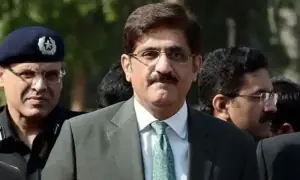







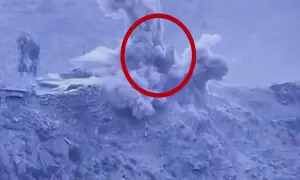
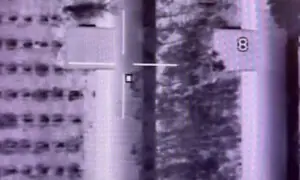
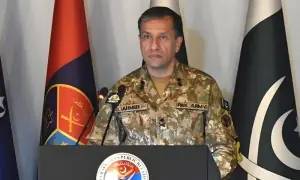
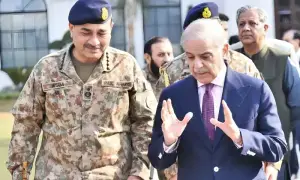
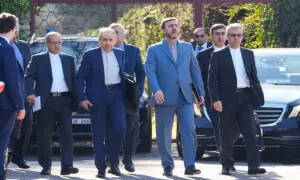

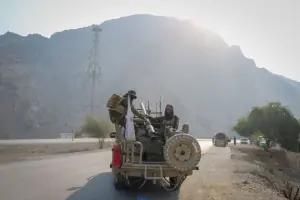
Comments are closed on this story.